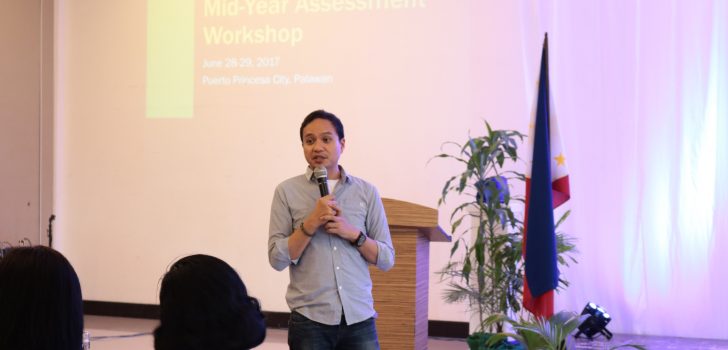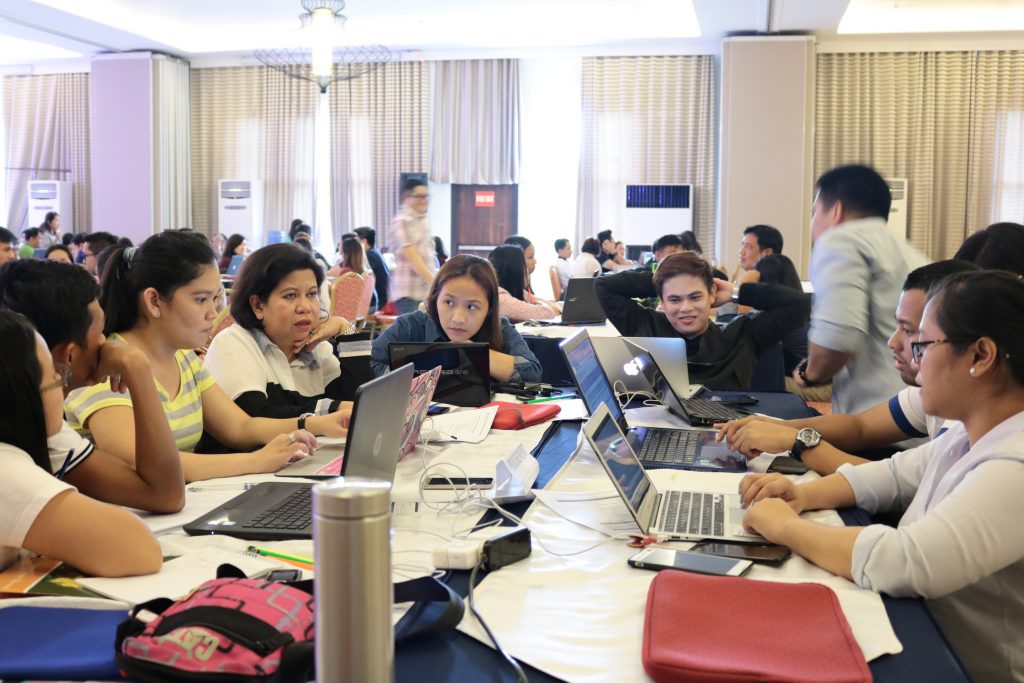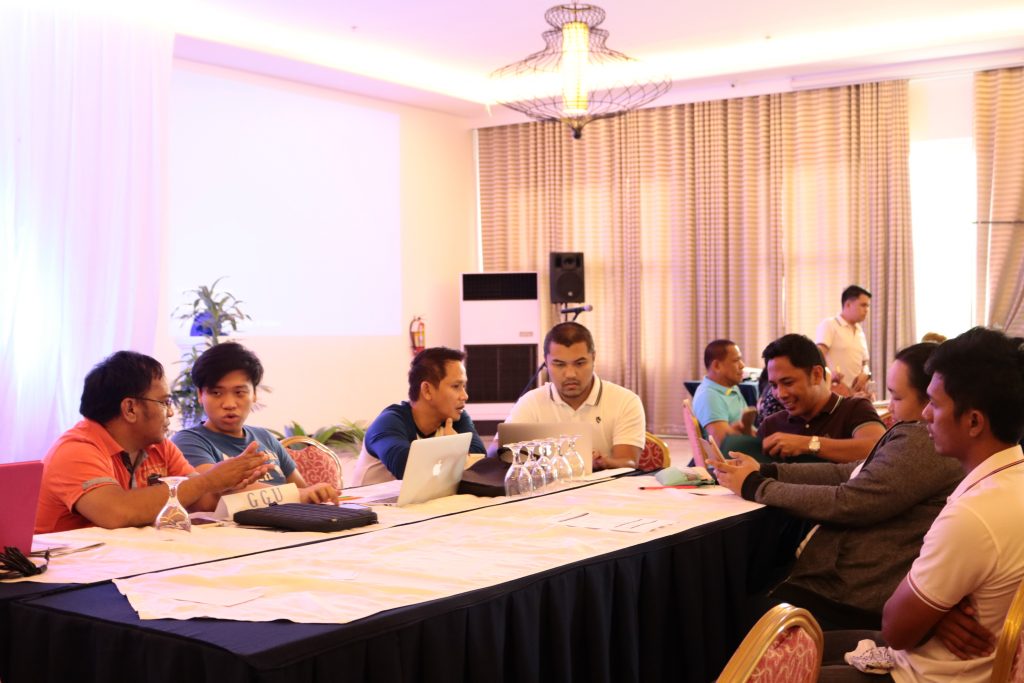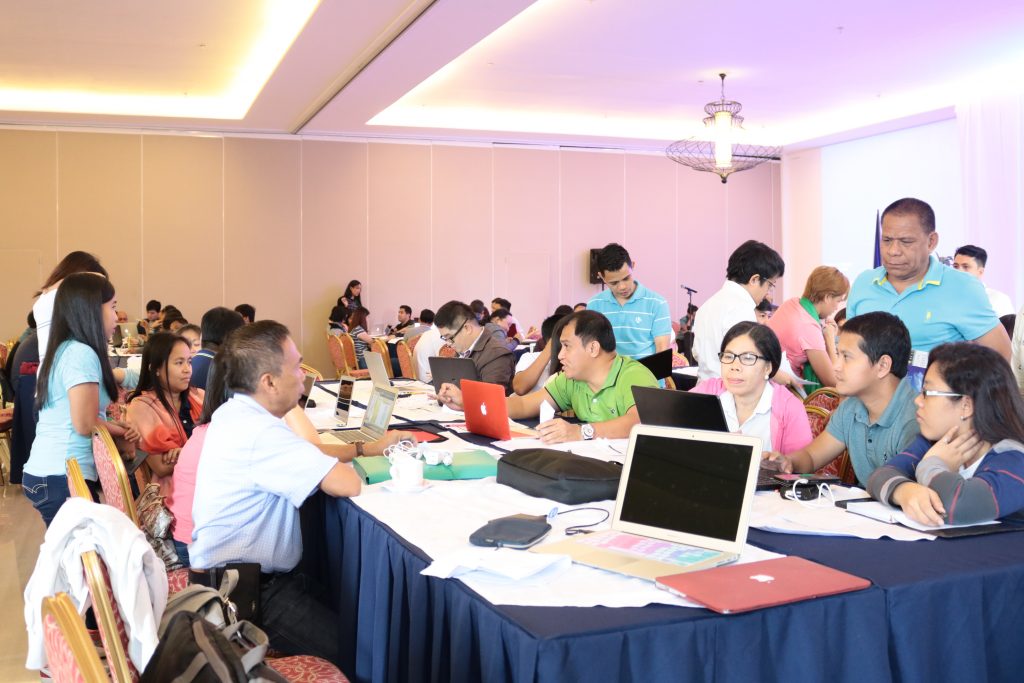 PRDP South Luzon Project Support O ce Director Shandy Hubilla presents the objectives of the cluster’s midyear assessment and planning workshop. (Photo by Ana Francesca Chavez)
PRDP South Luzon Project Support O ce Director Shandy Hubilla presents the objectives of the cluster’s midyear assessment and planning workshop. (Photo by Ana Francesca Chavez) PRDP South Luzon gathers to ‘accelerate momentum gained’
The PRDP South Luzon Project Support Office (PSO) convened its regional counterparts on June 27 to 30 for the cluster’s midyear assessment and planning workshop.
The said activity was primarily aimed at assessing the cluster’s performance in terms of Project implementation and planning how to achieve its succeeding targets.
PSO Director Shandy Hubilla presented proven and working strategies that the cluster would continue to apply and he identified ways on how the team should “accelerate momentum gained.”
During the recent World Bank review mission in May, the cluster received positive feedback from the funding agency. The Bank’s Task Team Leader and Lead Agriculture Economist Frauke Jungbluth commented that the cluster made a lot of progress and observed some of its good practices.
Value chain development and interagency collaborations
For the local and national level planning (I-PLAN) component, Hubilla emphasized the Bank’s statement that they want to see how strategic the Value Chain Analyses (VCAs) have been in terms of improving a particular commodity value chain.
As of June 23, the cluster has 47 VCAs, wherein 30 are approved by the national office, 12 are under data gathering process, and 5 are for review of the national office. The component facilitated the approval of 18 Commodity Investment Plans (CIPs) and the updating of 16 CIPs.
In addition, the I-PLAN team continues to broaden investments in the value chains by scaling up inter-agency collaborations through the signing of Memorandum of Understanding among various government and nongovernment agencies.
Improved monitoring of I-BUILD subprojects
The Director showed the comparative status of infrastructure development (I-BUILD) subprojects across the cluster and he reported that the cluster ranks lowest in terms of I-BUILD disbursement.
To effectively supervise the subprojects and ensure its progress, it was proposed that PRDP staff of the PSO and the regions should be in the field more often and closely coordinate with the local government units and contractors.
As of June 23, the there are 48 approved subprojects in the cluster. Twenty-three of which are under procurement, 22 are under implementation, and three were completed.
Increase in I-REAP disbursement
Director Hubilla commended the enterprise development (I-REAP) component for having “a lot of progress,” which was also noted by the World Bank team during the recent mission. The Bank’s Economist Luningning Bondoc complimented the I-REAP team for closely working with the procurement, finance, and compliance units, which resulted in high disbursement rate vis-à-vis obligation.
To streamline the I-REAP process and ensure that the necessary documents are ready, she agreed with the component that Joint Technical Committee Reviews should be done before the Regional Project Advisory Board meetings.
The cluster’s I-REAP disbursement increased by 219 percent from P8.21 million-worth of during the third mission in October 2016 to P26.23 million during the fourth mission in May 2017.
Strategic directions
During the workshop, the components and units of the PSO and Regional Project Coordination Offices had their separate discussions on how to fast-track subproject implementation. The groups also determined how to efficiently use their respective budgets by drafting their work and financial plans (WFPs).
Through the workshop the cluster accomplished a harmonized calendar of activities that are output-driven, updated WFPs from July to December 2017, and catch-up plans based on the mission findings and recommendations. Moreover, the cluster identified some strategies on how to increase disbursement in all aspects of the Project implementation and meet at least 90 percent of targets from the subproject approval until completion. ### (Gumamela Celes Bejarin, DA-PRDP South Luzon PSO InfoACE Unit)

Th PSO and RPCO Procurement Unit staff discuss their targets for the remaining months of the year. (Photo by Ana Francesca Chavez)

The Geomapping and Governance Unit (GGU) staff of the PSO and RPCO set their harmonized calendar of activities. (Photo by Ana Francesca Chavez)

